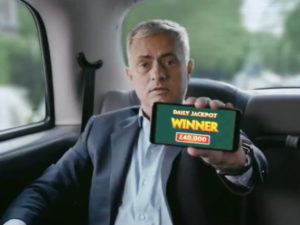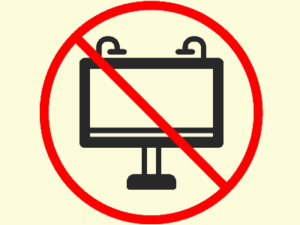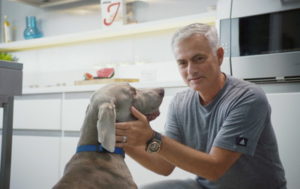UK Gambling Ads To Stop Using Celebrities
 It has long been the done thing to use celebrities to appeal to audiences, but it looks as though it will be a thing of the past when it comes to doing that if a company is advertising a gambling product. Whether it be reality TV stars, sports personalities or even globally famous singers, famous people have always been used to help companies flog their products. Under a new crackdown aimed at stopping under-18s being targeted, however, it looks like that will be changing.
It has long been the done thing to use celebrities to appeal to audiences, but it looks as though it will be a thing of the past when it comes to doing that if a company is advertising a gambling product. Whether it be reality TV stars, sports personalities or even globally famous singers, famous people have always been used to help companies flog their products. Under a new crackdown aimed at stopping under-18s being targeted, however, it looks like that will be changing.
The body responsible for setting the advertising code in the United Kingdom, the Committees of Advertising Practice, has launched a public consultation on the idea of banning celebrity appearances in gambling adverts in order to reduce the chance of younger people finding it appealing. Interestingly, it’s not all celebrities that the new rules would ban, but rather just those that are likely to appeal to a younger demographic.
This follows a ruling last year that celebrities under the age of 25 should not be used to promote gambling products.
Why A Ban Is Being Considered?
 In 2018, it was revealed that problem underage gambling had quadrupled in a two year period. As many as 50,000 children were classes as having a gambling problem, with around half a million aged between 11 and 16 betting regularly. Betting was more prevalent in young people than smoking, drinking alcohol and taking drugs. Defined as a ‘generational scandal’ by the Bishop of St. Albans, it has been on the list of things for regulators to target ever since.
In 2018, it was revealed that problem underage gambling had quadrupled in a two year period. As many as 50,000 children were classes as having a gambling problem, with around half a million aged between 11 and 16 betting regularly. Betting was more prevalent in young people than smoking, drinking alcohol and taking drugs. Defined as a ‘generational scandal’ by the Bishop of St. Albans, it has been on the list of things for regulators to target ever since.
Finding a way to reduce the number of underage gamblers is seen as important by everyone working in the industry. The normalisation of gambling for young people has become widespread in the eyes of some, with the likes of loot boxes in video games seen as a gateway to experiencing gambling. Given that experts believe that video gamers will spend up to £34 billion on loot boxes by 2022, it’s clear why this sort of way in to gambling is such a concern to many.
At the start of the year it was felt that a new Gambling Act for the modern world was necessary in order to curb a gambling industry that was ‘out of control’. With just under half a million problem gamblers in the United Kingdom, it is felt that more needs to be done to help them and to stop younger people developing into problem gamblers themselves. A cross-part consensus is there to reform the industry, so the UKGC is keep to act before it is forced to do so.
What Is The Plan?
 The plan from the Committees of Advertising Practice is aimed at significantly reducing the number of prominent sportspeople and celebrities that will be able to be used to advertising gambling products. The likes of social media influencers and people from shows such as Love Island will no longer be allowed to feature in gambling adverts or associate themselves with gambling products in any way, with the plan being to reduce the appeal to younger people.
The plan from the Committees of Advertising Practice is aimed at significantly reducing the number of prominent sportspeople and celebrities that will be able to be used to advertising gambling products. The likes of social media influencers and people from shows such as Love Island will no longer be allowed to feature in gambling adverts or associate themselves with gambling products in any way, with the plan being to reduce the appeal to younger people.
The idea from CAP to tighten advertising regulation for betting and gambling appears to be based on research carried out by the charity GambleAware. The research pointed out that plenty of adverts that were appealing to young people were actually meeting the current rules set out by the current UK code. By limiting the appearance of celebrities or well-known people, it is hoped that gambling adverts will not appeal to those under the age of 18.
The likes of current footballers and managers, who will obviously be known to young people, will no longer be able to be used in gambling adverts. The likes of England captain Harry Kane, Tottenham Hotspur manager José Mourinho and the club’s former manager Harry Redknapp are all the sorts of celebrities that CAP wants to stop from appearing in adverts in the future. Companies that use these types of people in their adverts will need to think again.
Does The Ban Go Far Enough?
 The obvious question that many anti-gambling campaigners will ask is whether or not the move from CAP goes far enough. After all, celebrities that are deemed to not appeal to a younger audience will still be allowed to work in advertising for gambling companies. The likes of Ray Winstone, who has been the face of Bet365 for many years, is not thought of as someone who appeals to a youth market and will therefore be allowed to carry on appearing in ads.
The obvious question that many anti-gambling campaigners will ask is whether or not the move from CAP goes far enough. After all, celebrities that are deemed to not appeal to a younger audience will still be allowed to work in advertising for gambling companies. The likes of Ray Winstone, who has been the face of Bet365 for many years, is not thought of as someone who appeals to a youth market and will therefore be allowed to carry on appearing in ads.
At the same time, CAP rejected calls from GambleAware to restrict the range of media in which gambling adverts can appear even further. As things currently stand, adverts for betting and gambling companies are not allowed to feature in a media if the audience for said media is considered to be a quarter or more under the age of 18. CAP said it feels that the so-called 25% test is an appropriate benchmark for gambling adverts in media.
Anti-gambling campaigners would rather see a total ban on gambling adverts, which isn’t a realistic aim. CAP also said that the current evidence doesn’t justify a complete ban on advertising from betting companies, even if the adverts are able to appeal to a younger audience. Instead, it is felt that removing the appeal to youngsters will be enough to limit the amount of children under 16 that will engage in betting and gambling in the future.
The betting industry, on the other hand, would no doubt argue that introducing a ban on celebrities that appeal to a young market, in the wake of bringing in a whistle-to-whistle ban on gambling adverts during sports programmes that are on before the watershed, is enough. The decision to self-regulate with the blackout came about thanks to mounting pressure to do something about the number of children being exposed to gambling adverts.
At the time, many felt that the gambling industry introduced the blackout in order to avoid having regulation over the matter forced on it. With that in mind, it’s unlikely that many betting companies will put up much of a fight in order to carry on using celebrities that appeal to young people if they know that that increases the risk of underage gamblers. It’s likely that most in the industry will want to limit the already strict legislation being put on them wherever possible.



